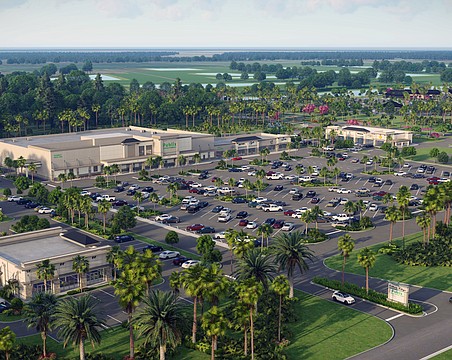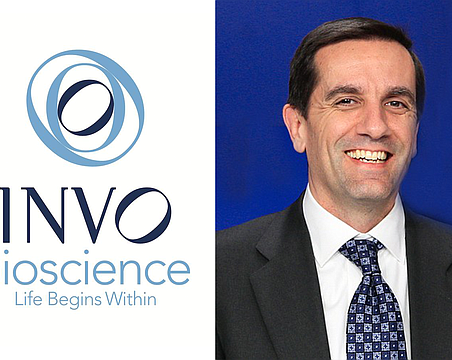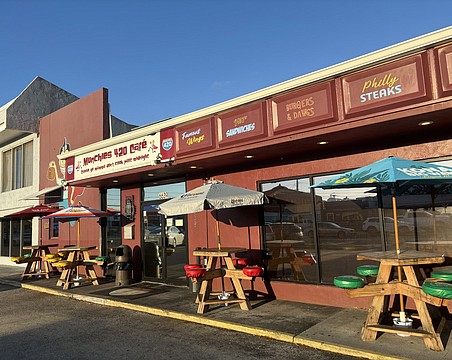Troubled Waters Ahead
Marine Insurance by Jean Gruss | Editor/Lee-Collier
John Findley recently got the letter he was dreading.
The manager of the Pelican Isle Yacht Club in Naples says he received a notice last month from the club's insurer that it was going to exclude wind and flood from the marina's policy. On top of that, the letter says the marina's premiums will rise 15%.
The 45-day notice he received is hardly enough time to find replacement coverage at a time when some insurance companies have stopped writing marine-related insurance altogether.
Findley's advice to others in the boat business: Be prepared for rate increases and exclusions for events such as wind damage. "There are a lot of people who don't even know that their boat insurance is going to go up 10% to 100%," he says. "A lot of that has not hit the market yet."
At the Naples Marina and Boating Center, general manager Ted Maupin says he's heard rumors from his insurance agent that premiums will likely double this year.
"To remain a viable business, the only thing we're able to do is to reflect that in our current storage rates," Maupin says. Rents for the marina's 680 dry slips will increase $2 per foot per month to $12 a foot, a 20% increase. "It's frightful that you have to have that kind of increase," he says, "just to hold your own."
At Yachting Vacations, a sailboat charter company near Punta Gorda, the fleet's 14 boats will cost 27% more to insure this year, says company president Chris Rogiers.
Rogiers says his company will have to absorb some of the extra cost. "You cannot pass everything on to the customer all the time," he says. "There's a price breakpoint." His prices will increase 5% this year.
Meanwhile, boat owners are also likely to face steeper premiums and higher deductibles this year, agents say. Some companies are dropping policies or aren't taking on any new business. "We're working a lot harder now because of non-renewals," says Carlton Phillips, yacht and marine manager with Lutgert Insurance in Naples. Phillips says he's never seen the situation so difficult in his 40 years in the business. "This is mind-boggling to me," he says.
Phillips says companies such as Safeco are getting out of the marine business. Zurich, another company, had written all the new policies it would write in Florida by March. "Capacity is almost down to zero," Phillips says.
One of Phillips' customers saw the annual premium on his 46-foot powerboat rise from $2,750 last year to $5,500 this year. What's more, the hurricane deductible rose from 5% to 10% based on the value of the boat. For example, the deductible on a $1 million boat is now $100,000.
Other agents report similar challenges because fewer insurers are willing to take on the risks. "We did a lot of business in Florida before the storms," says Michael Smith, founder and president of Global Marine Insurance, a Michigan-based insurance company with offices in St. Petersburg, Sarasota and Fort Lauderdale. "I will tell you it had a significant impact to our budget in 2006," he says.
So far, the insurance increases have not affected boat sales, at least anecdotally. MarineMax, a Clearwater-based boat dealer company with 24 locations in Florida, says the higher cost and the dwindling availability of insurance have not impacted sales.
A changing market
The marine insurance market in Florida started changing in 2004 after four hurricanes crossed the state. Smith says the boat losses from those four storms alone cost the industry $600 million.
One of the largest insurance companies, Allstate, stopped writing any new boat policies after the 2004 hurricanes. Others, such as ACE Inamar, have tightened their underwriting standards, brokers say.
The changes have been especially tough on marinas. It's easy to understand why: Many of them have metal buildings that tend to be more vulnerable to wind damage and their docks can be shattered in bad storms.
"Conventional insurance companies don't like to get into the marina-insurance business because it's highly specialized underwriting," says Jim Carraher, a consultant with Oswald Trippe and Co., an insurance broker in Fort Myers.
What's more, insurance companies are paying more to reinsurers for taking on boats and marinas. Reinsurance is insurance for insurance companies. "There's always a general tightening of reinsurance after a storm season," says Carraher. Typically, those rates are negotiated in January and July, so the January reinsurance increases will start to filter down to consumers and marine-related businesses in the months ahead.
Marinas are increasingly turning to what the industry calls "surplus lines," which include Lloyds. Still, those policies tend to be more costly and restrictive. It can also take longer to resolve a claim, because the policies often contain numerous exclusions. The most difficult exclusion is one in which the company will decline to pay if it finds the customer was grossly negligent in protecting his property.
The Wolverine advantage
Another bad season of hurricanes could force more insurers to stop writing marine insurance in Florida. So far, insurance giant State Farm is still writing new boat policies in the state. The company has 70,502 boat policies in the state and only increased premiums 5% last year. However, State Farm spokeswoman Michael Shanley declined to say whether any changes are in store later this year. "We're limited in what we can say about projections," she says.
Global Marine Insurance's Michael Smith says another year of bad hurricanes almost certainly will mean more insurers will leave the Florida market. To prepare, Smith says companies are spreading their risk by insuring more boats in places such as Michigan, where he says rates are falling because of the fierce competition.
Smith says insurance companies will let him write one policy in Florida for every four he can write in Michigan. "I never would have imagined that being in Michigan would give me an advantage selling policies in Florida," Smith says.
Still, some suggest that rising premiums and deductibles means insurers are less likely to leave the state even if more hurricanes strike. That's because boat owners and marinas will bear a greater portion of future storms.
"The clients are sharing more of the risk and it reduces their exposure," says Lutgert's Phillips.
What's more, insurance companies will weed out customers with poor records and keep those with few claims. Phillips estimates that an experienced marina operator with few claims can pay as much as 10% to 25% less than others.
One option some marinas are considering is self-insurance. But for those who have bank financing, it's not much of an option, as lenders won't lend without third-party insurance.
Others will sell out as costs such as insurance become too great. Findley, the manager of the Pelican Isle Yacht Club, suspect that's one of the drivers in the "dockominium" trend, in which marinas sell slips much like a residential developer sells condos.
"They're getting hit from every direction," Findley says. "It's going to make boating that much more difficult."
Costliest Storms
Six of the 10 costliest American catastrophes touched Florida within the past two years. $ in millions.
Rank Year Catastrophe Cost
1 2005 Hurricane Katrina $38,111
2 1992 Hurricane Andrew $21,579
3 2001 9-11 attacks $20,716
4 1994 Northridge earthqke. $16,475
5 2005 Hurricane Wilma $8,418
6 2004 Hurricane Charley $7,729
7 2004 Hurricane Ivan $7,352
8 1989 Hurricane Hugo $6,608
9 2005 Hurricane Rita $4,976
10 2004 Hurricane Frances $4,751
Source: State Task Force on Long-Term Solutions for Florida's Hurricane Insurance Market
, March 6, 2006





